Indigenous organizations are building strong foundations to secure their rights and territories
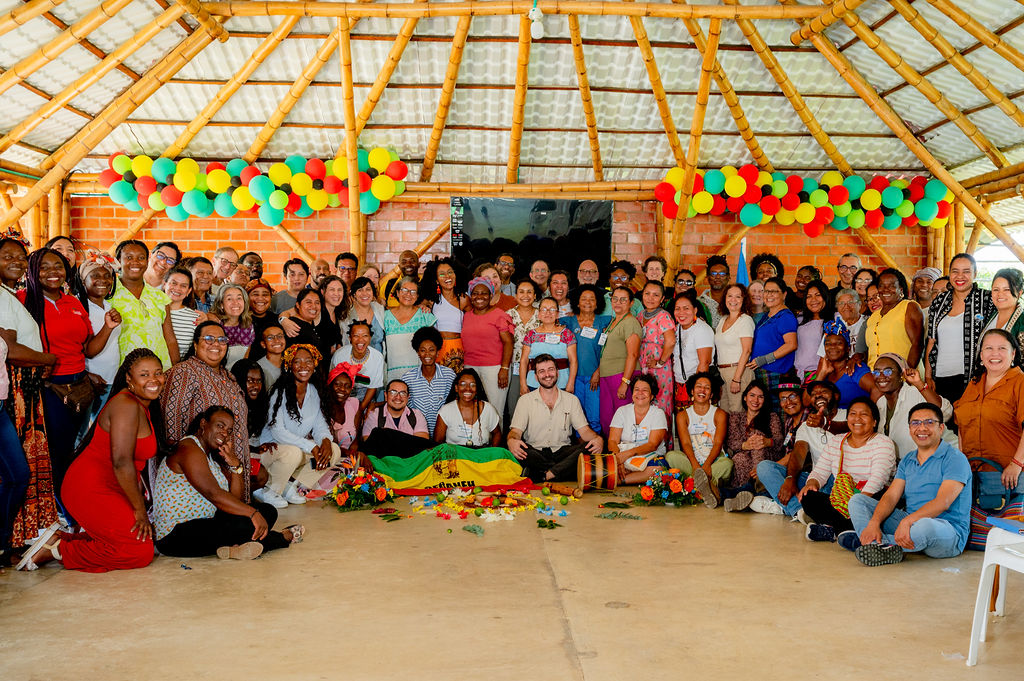
In a world where the voices of Indigenous, Afro-descendant, and traditional communities are often sidelined, it’s imperative to create spaces that prioritize these perspectives to foster meaningful shifts within the funding ecosystem. In February 2024, Entre Povos—an initiative whose purpose is to strengthen institutions and advance its member organizations’ rights to good lives—organized a gathering in Colombia to promote dialogue, exchange, and learning among these communities.
Breaking Barriers, Building Futures: Indigenous Women Take the Lead in the Peruvian Amazon
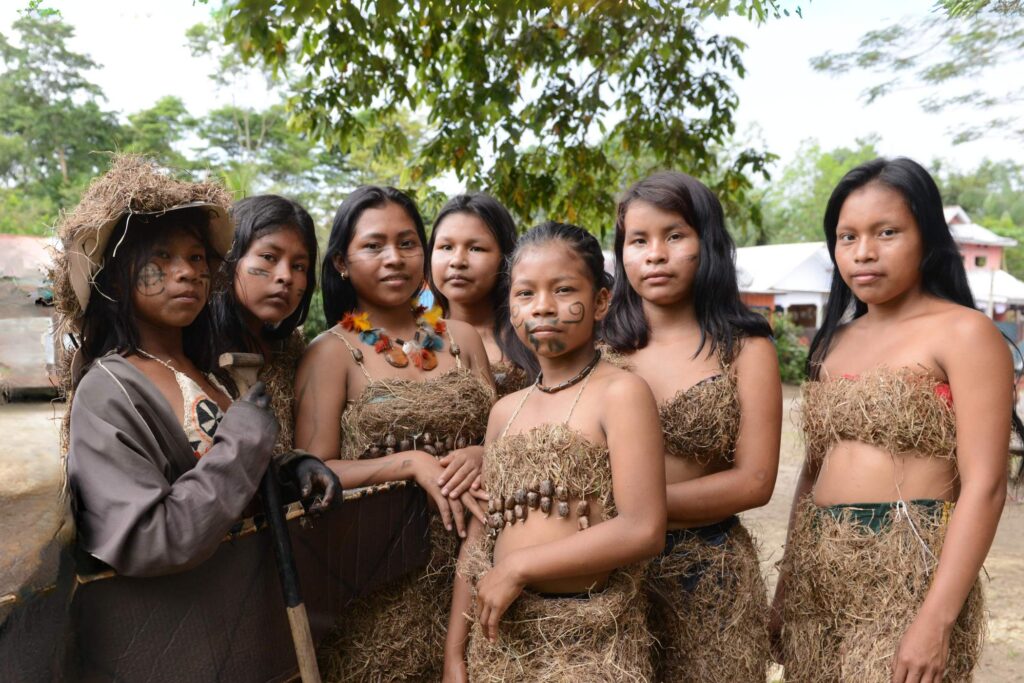
Indigenous women in Ucayali and Loreto province, Peru, are shattering gender barriers and reshaping traditions. Despite enduring historical exclusion from leadership roles, they are now rewriting this narrative.
Discover how the Affirmative Measures Project, led by the Rainforest Foundation US team in Peru, is bridging the gap for women to actively participate and lead.
Scientific Evidence Points to Indigenous Peoples’ Forest Management as Key to Climate Change Mitigation
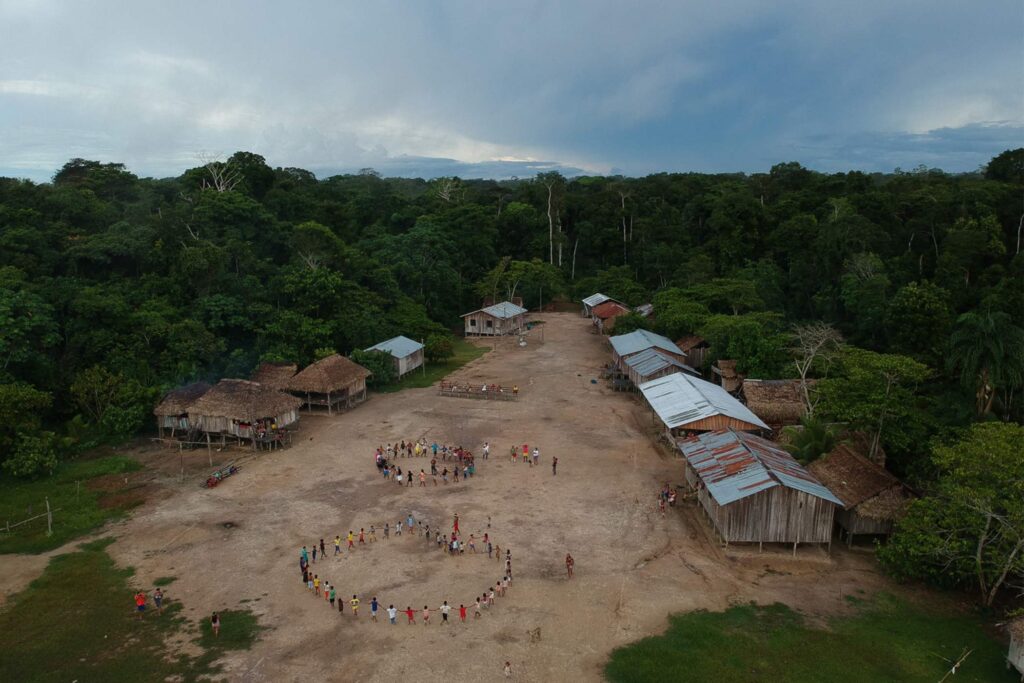
Indigenous peoples have shaped and managed vast rainforest territories for millennia. These rainforests regulate rainfall, store carbon, and shelter immense biodiversity and sociocultural diversity. In recent years, several studies have provided statistical evidence confirming that lands legally titled to Indigenous peoples are the most efficient models for forest protection.
Yanomami Crisis Continues: Mismanagement and Security Failures Undermine Brazil’s Efforts to Combat Health Emergency
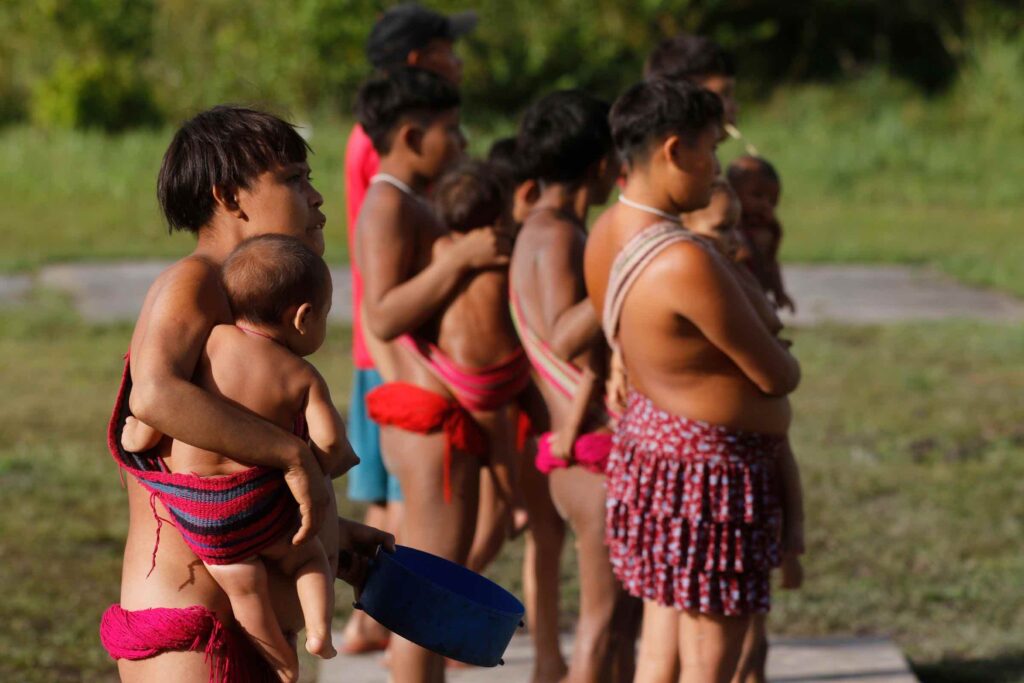
A year after declaring a public health emergency in the Yanomami territory in Roraima, Brazil, the world is once again shocked by images of Yanomami children in states of severe malnutrition. 308 deaths were recorded in Yanomami territory in 2023. The main causes of death include pneumonia, diarrhea, malaria, and malnutrition.
Six Climate Topics to Counter Despair with Determination in 2024
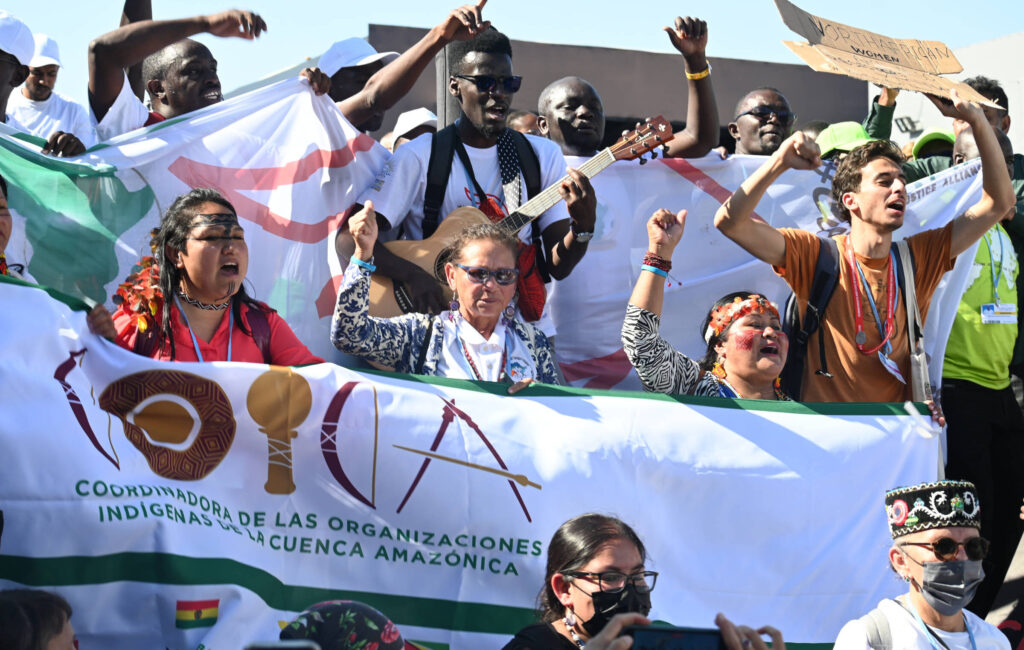
The effects of climate change are no longer distant warnings; they’re here. We must stand united and vigilant, continuing to advocate for change in the face of climate despair.
As we step into 2024, we at Rainforest Foundation US (RFUS) are keeping our eyes on these six topics as a source of ongoing determination.
RFUS and the Indigenous Council of Roraima Unite to Strengthen Community Governance in Brazil’s Northern Amazon
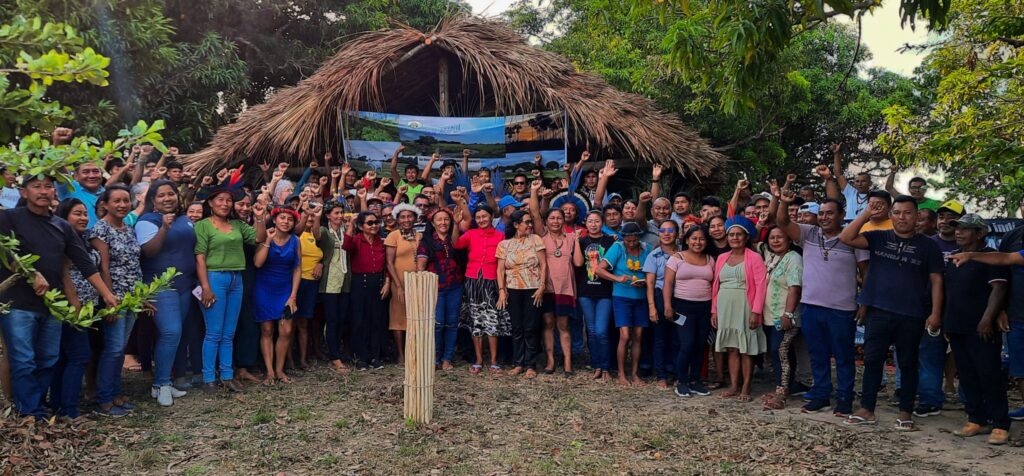
Rainforest Foundation US held a joint workshop in partnership with the Roraima Indigenous Council (CIR) focused on integrating CIR’s diverse departments, and promoting strengthened governance and collaboration. RFUS and CIR’s partnership spans 20 years, demonstrating a deep commitment to Indigenous sovereignty and forest protection.
COP28: Indigenous peoples should take center stage, and supporting their communities is key to effectively mitigating climate change
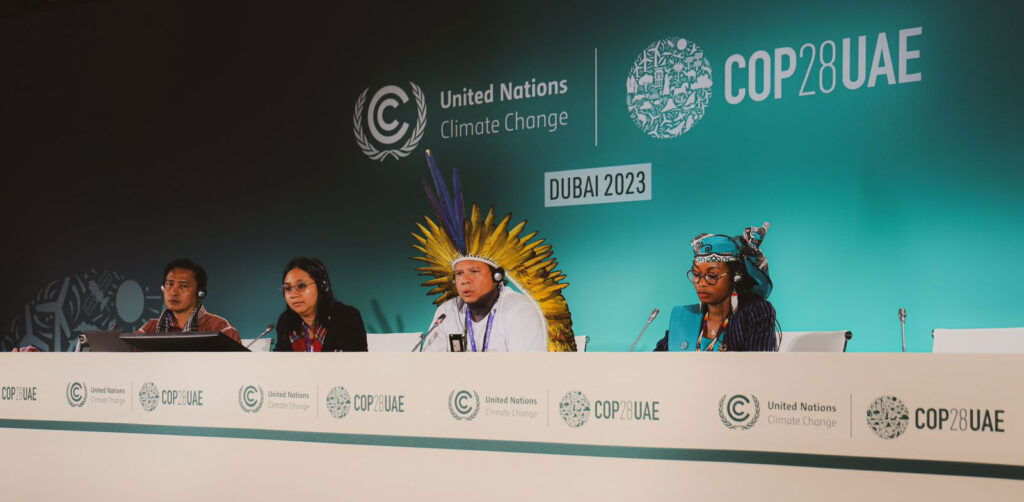
Rainforest Foundation US (RFUS) will participate in COP28, supporting Indigenous leaders from the Global Alliance of Territorial Communities (GATC), an organization that unites Indigenous peoples and local community (IP and LC) organizations from 24 countries in the Amazon Basin, Mesoamérica, the Congo Basin, and Indonesia, among other national and regional partners.
Indigenous Tech Camps: An Incubator for Indigenous-Led Solutions in the Peruvian Amazon
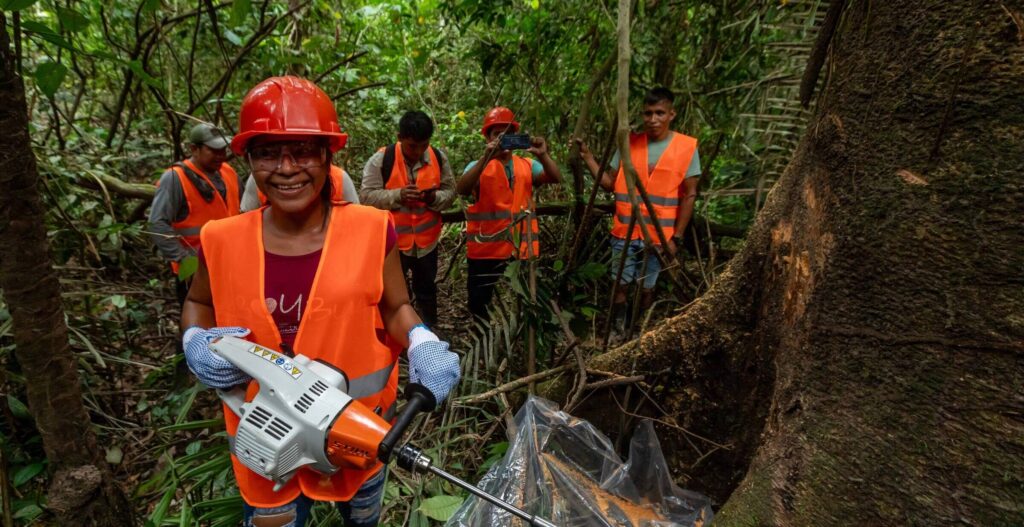
Rainforest Foundation US hosted events in the Peruvian Amazon to develop four pilot programs led by Indigenous communities to scale up effective conservation strategies. The Indigenous Tech Camps served as a collaborative platform, uniting various Indigenous organizations with academics, government officials, and international allies. These initiatives underscore our commitment to advancing Indigenous-led solutions in the Amazon.
“The River is Gone” Communities in the Amazon Struggle Through Worst Drought in Recent History
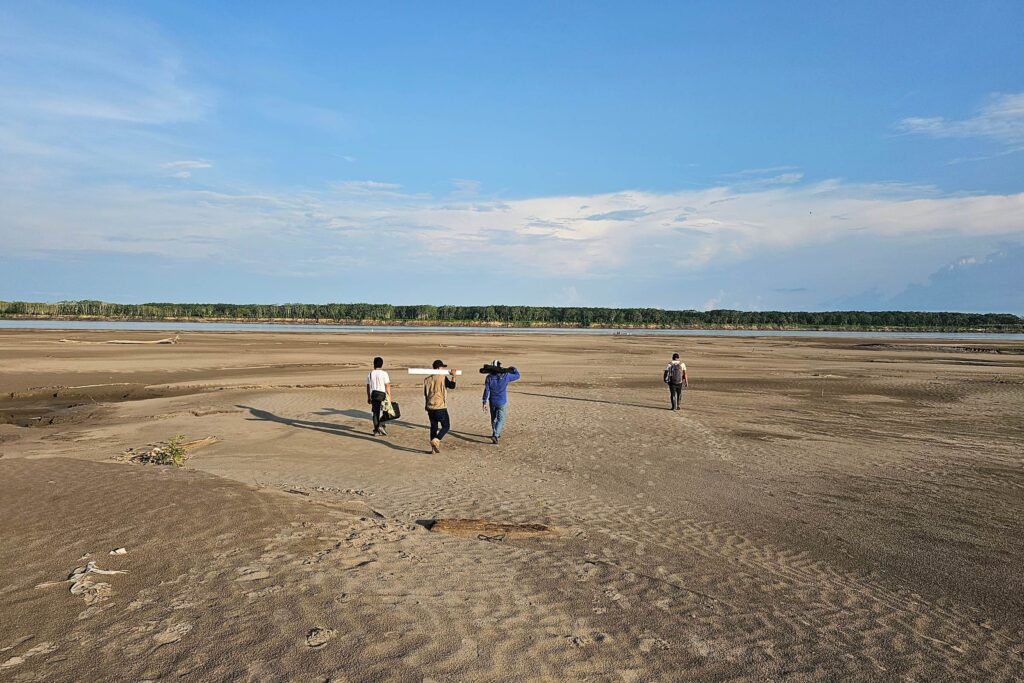
A severe drought in the Amazon is disrupting transportation, isolating communities, and putting wildlife at risk for survival. Indigenous peoples in the region are urging their governments to declare a climate emergency.
The Future is Female, and Indigenous
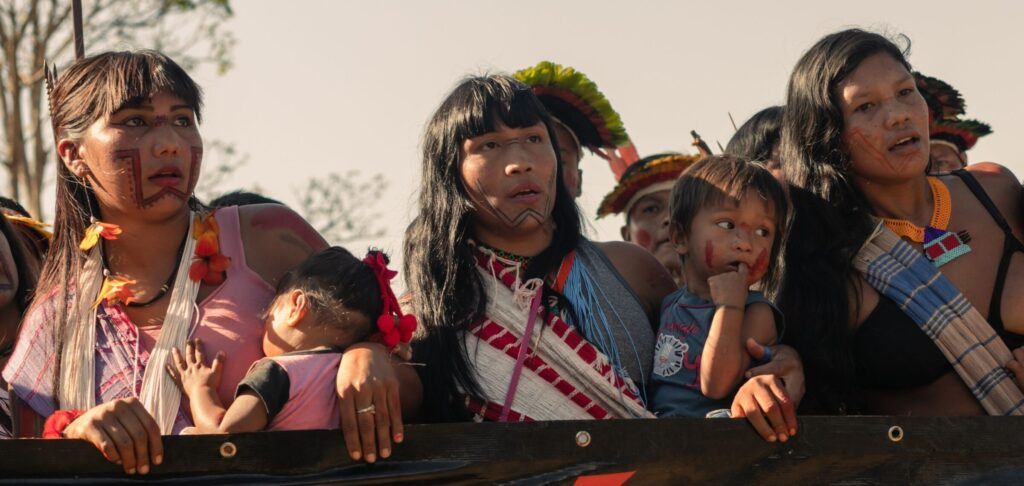
The III Indigenous Women’s March, held from September 11-14 in the Brazilian capital, Brasilia, brought together over 6,000 female leaders from various Indigenous communities worldwide. A delegation of women from Roraima highlighted how far women in Brazil were willing to travel to have their voices heard in the rallying cry in defense of their lands and cultures. Read our full account of the events.







